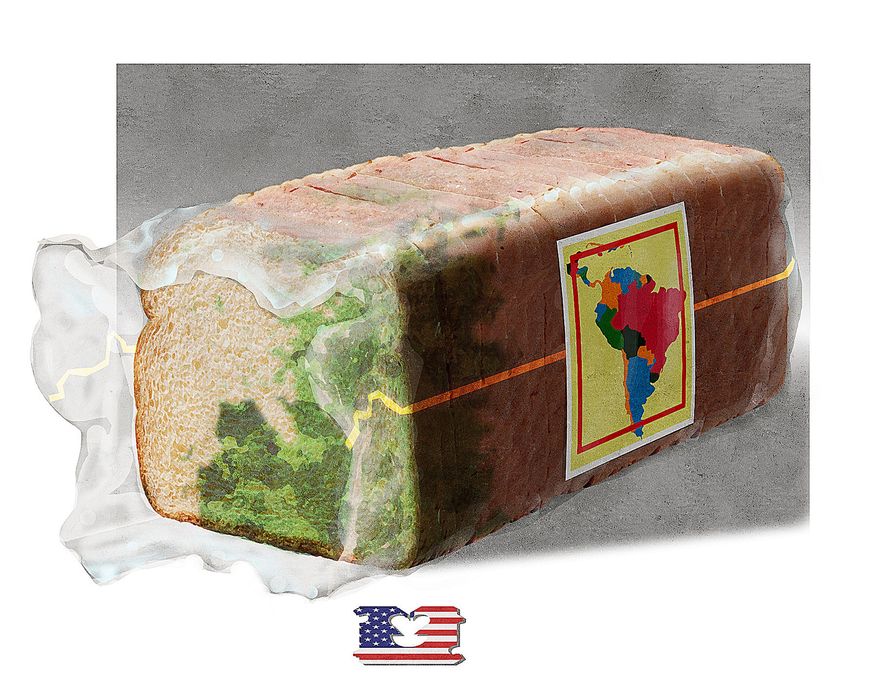FOOD SHORTAGE AND SUBSTITUTIONS WILL IMPACT THE POOREST NATIONS THE MOST
There is a tendency to call political opponents racist these days. The Biden folks are particularly prone to label those who disagree with them as having racist motives, when in fact people can have very honest disagreements on policy.
Politicians and members of the news media too often fail to think through the consequences of various policies, a particularly bad habit of the current administration, which has led them to many unnecessary problems.
In the past few weeks, there has been much discussion in the media about an impending world “food shortage.” In summary, the argument is that the war in Ukraine is resulting in a large reduction in Russian and Ukrainian grain exports, particularly wheat. Grain prices have soared, which is a big hardship for low-income countries and people.
The world is not going to run out of food in the near future. Food producers have been supplying far more food each year than is consumed, and most of the surplus goes to waste. There are now 8 billion people on the planet, and each year farmers have been providing enough food to feed far more than ten billion people. Governments and private parties have also accumulated huge reserves of food.
The problem is the allocation and distribution of the food that is produced and the kinds of food produced. In general, people do not consume enough fruits and vegetables (which are relatively expensive) and consume too much grain (which is cheap and part of the global obesity problem).
Food is a form of bottled energy — in that the price of food is very dependent on the price of energy, especially fossil fuels. Many fertilizers are made from natural gas. It takes energy to build and run farm and processing machinery. Farm products are shipped by boat, rail, air and trucks — all of which take considerable energy.
Blueberries are considered a very healthy food, and due to the miracle of modern logistics, consumers in Virginia can obtain fresh blueberries every month of the year. In the middle of the winter, blueberries come from Chile, in early spring — from Florida and Mexico, and then from the southern states; by summer, they come from New Jersey and Michigan, and even later from Canada. Most consumers do not even pay attention to where they are grown, because the product is standard. Blueberries require a lot of expense and energy to grow and distribute due to the limited shelf life and because they can be easily damaged. Many fresh fruits are flown from Chile to U.S. cities in mid-winter — not an inexpensive undertaking.
The result is that per calorie consumed blueberries are much more expensive and energy-intensive than corn. When food prices rise, people tend to substitute lower-priced food (and often unhealthier) for higher-priced food. The average American only spends about 10% of his or her income on food, while in poorer countries people often spend from 70% to 80% or even more of their income on food.
The Biden administration has said it wants to phase out fossil fuel production and consumption and is begging the oil industry to produce more because of the politically inconvenient price increases. If you are in the oil business, are you going to spend billions to build new refineries and other infrastructure when your political masters say they want to kill your industry within a decade or two? Probably not, given the many years it takes to recoup such investments. There is almost no one in the upper ranks of the Biden administration who has business experience — so basic financial concepts like depreciation, discounted cash flow and present value are meaningless to them.
The fact that the administration has shut down pipelines (often the least expensive and most environmentally friendly way of transporting oil and gas) and then acted shocked when supply went down and prices rose indicates their level of economic ignorance. The administration has also withdrawn many federal lands — including offshore areas — from potential oil and gas development, and instructed financial regulators to warn banks against providing investment funds to the industry.
Follow the chain. Less investment and more regulatory costs increase the price of oil and gas. This increase in costs necessitates that farmers and others in the agricultural supply chain increase their prices to stay in business. These price increases are passed on to consumers. Wealthier consumers pay the price increases while at the same time reduce their consumption of other goods and services or savings. Poorer consumers substitute cheaper foods (often less nutritious) to keep their calorie consumption stable.
Very poor people in developing countries often have to reduce their calorie intake and food variety. (Remember, there is one world price for most fossil fuels and major food commodities — so price rises anywhere are felt everywhere on the globe.)
The poor in developing countries are most often people of color that the administration claims to care so much about, yet they are the very people most hurt by the Biden policies. Do you think climate czar John Kerry, flying about in his private jet from mansion to mansion, thinks about the consequences of his policies on some poor African mother working as a seamstress? One could easily argue that the administration’s actions are ineffective, unnecessarily mean and racist.
• Richard W. Rahn is chairman of the Institute for Global Economic Growth and MCon LLC.
https://www.washingtontimes.com/news/2022/jul/25/the-biden-administrations-racist-energy-policies/
© Copyright 2022 The Washington Times, LLC.
